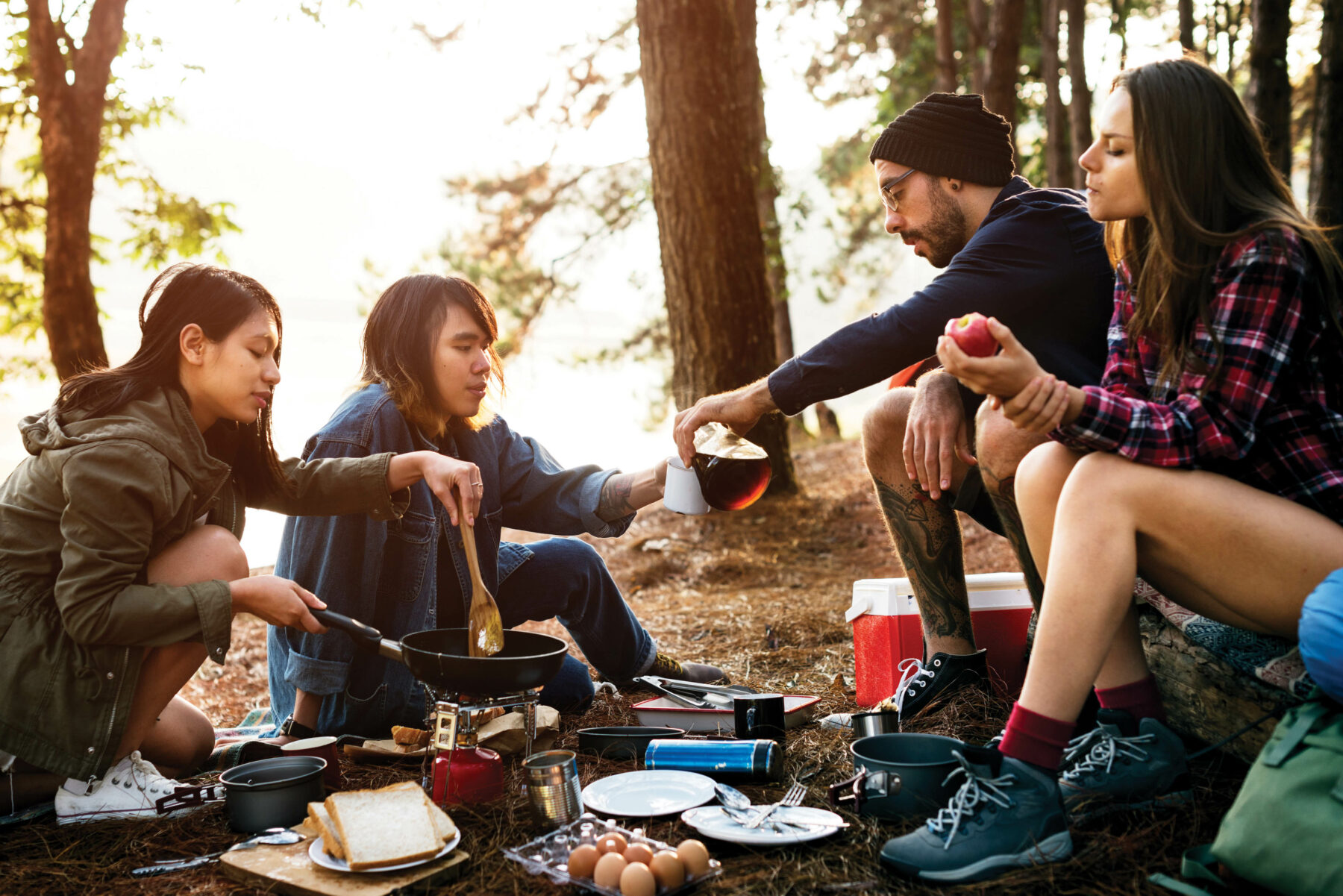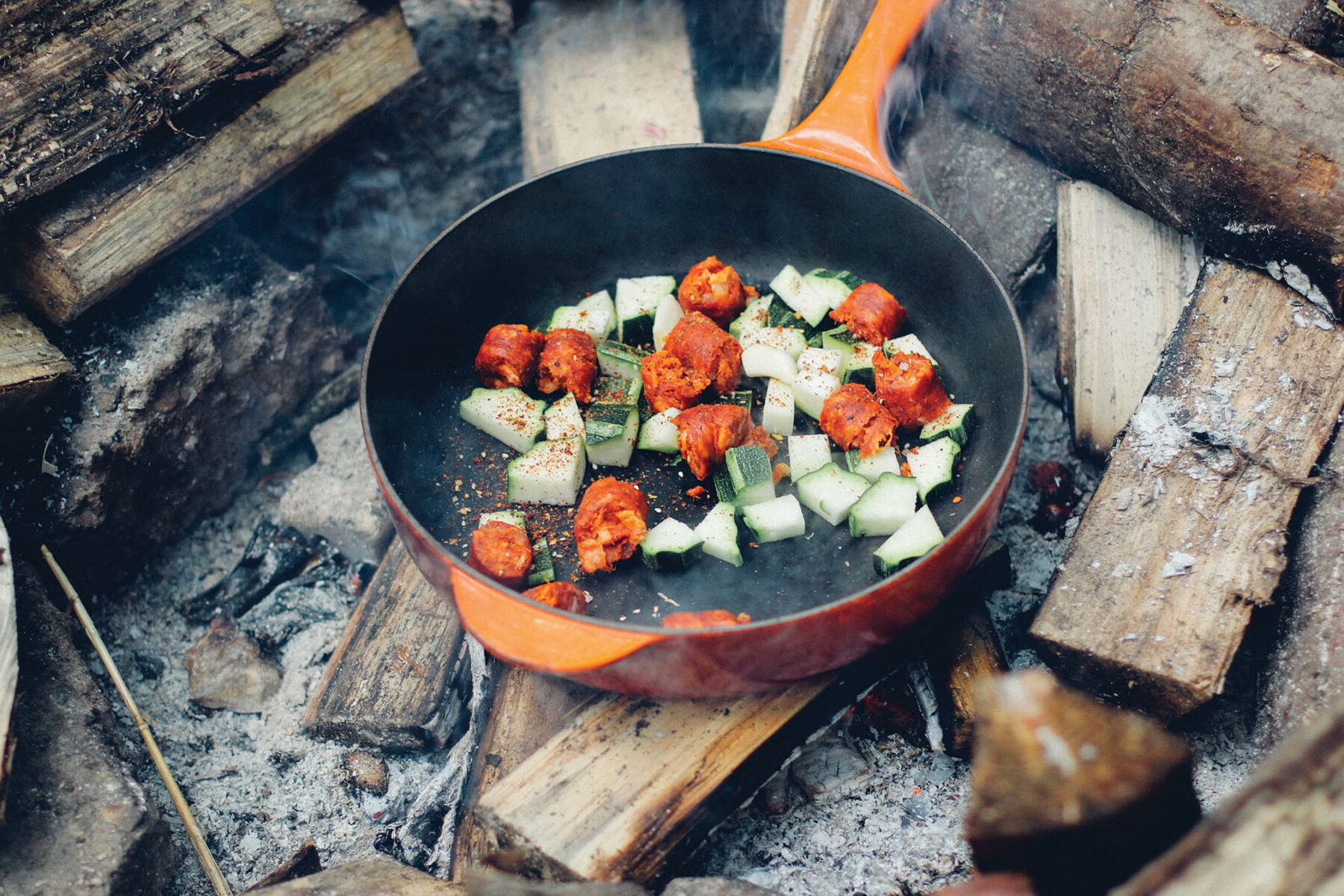A Meal Prep Guide for Camping

Achieving proper nutrition is one of many challenges when roughing it out outdoors. The stakes are high when it comes to eating, and the convenience of fast food is no longer a phone call away.
While camping should be fun with the occasional treat, advanced preparation can help keep eats healthy, well-balanced and, most importantly, stress-free. You’ve probably heard of meal prepping for your week to make meals less stressful, but meal prepping for camping can have the same effect.
Aside from meal prepping allowing for more free time, it also helps you with portion control and creates a space where you’re more consciously aware of the ingredients you’re consuming. Here are some tips to help your meal prepping go smoothly so you can enjoy a camping trip with your loved ones.
#1: Create a Meal Plan
If you’re new to the meal-prepping scene, it’s important to create a plan that works best for you. Consider how long the trip will be and set a vision for each meal and snack per day. Try to balance overpacking and underpacking; you want to avoid overpacking foods that surely won’t be eaten while also avoiding underpacking and being left hungry.
#2: Prep Ingredients Beforehand
Nobody wants to lug around more supplies than they have to when hitting the campgrounds. Consider pre-washing fruits and vegetables and pre-mixing sauces and dry ingredients at home to expedite the meal-prepping process and save space. Slicing tomatoes and onions or marinating chicken breasts can save a little extra time when preparing your food at the campsite while keeping a kitchen mess at bay.
#3: Be Mindful of Meat
Meat and fish have the potential for contamination if you’re not careful. Campsites are often limited on water, meaning dishes are at risk of not being thoroughly cleaned. Cooking meat products beforehand will help you avoid any potential risks and clean up. Even buying meat or fish that’s already cooked is another great option.

#4: Consider Large Batches
Making larger batches of your food will also be more efficient in the long run. For example, granola is both versatile and easy to use both for breakfast as well as a snack in between camping activities.
#5: Have a Food Storage Plan
Nothing can spoil a camping trip more than food going bad early. Having a solid storage plan is essential to a successful camping trip. Consider a bear-safe ice cooler your new best friend. The first night of meal preps should remain at the top of the cooler to maintain freshness. Items that won’t be eaten until the end of your trip should be stored at the bottom of the cooler. Store any liquids you may have in a separate cooler away from food. Keep separate containers in the cooler for sliced products like cheeses and meat slices. Additionally, when trash accumulates, a bear bag can be used to bag up your food and hang it from a tree branch.
#6: Bring Meal Prep-Friendly Food
A rule of thumb schedule to follow includes breakfast, lunch, dinner and at least one to three snacks per day, but the question remains: what kinds of meals are best for camping? Breakfast can include overnight oatmeal, make-ahead pancakes and breakfast sandwiches. Full-proof lunches are sandwiches, pasta salad or chili. Meal-prep-friendly dinners include chicken skewers, mac and cheese, pulled pork or burgers.
–
After all the prep is said and done, make sure to label everything in sight so as to not forget what you packed. Use leak-proof containers and plastic bags, and store them in easy-to-access places. Gone are the days of reaching for canned beans and hot dogs on a stick; here are the days of pre-making your camp eats for filling, healthy meals that will leave you and your camping crew happy and satisfied.






